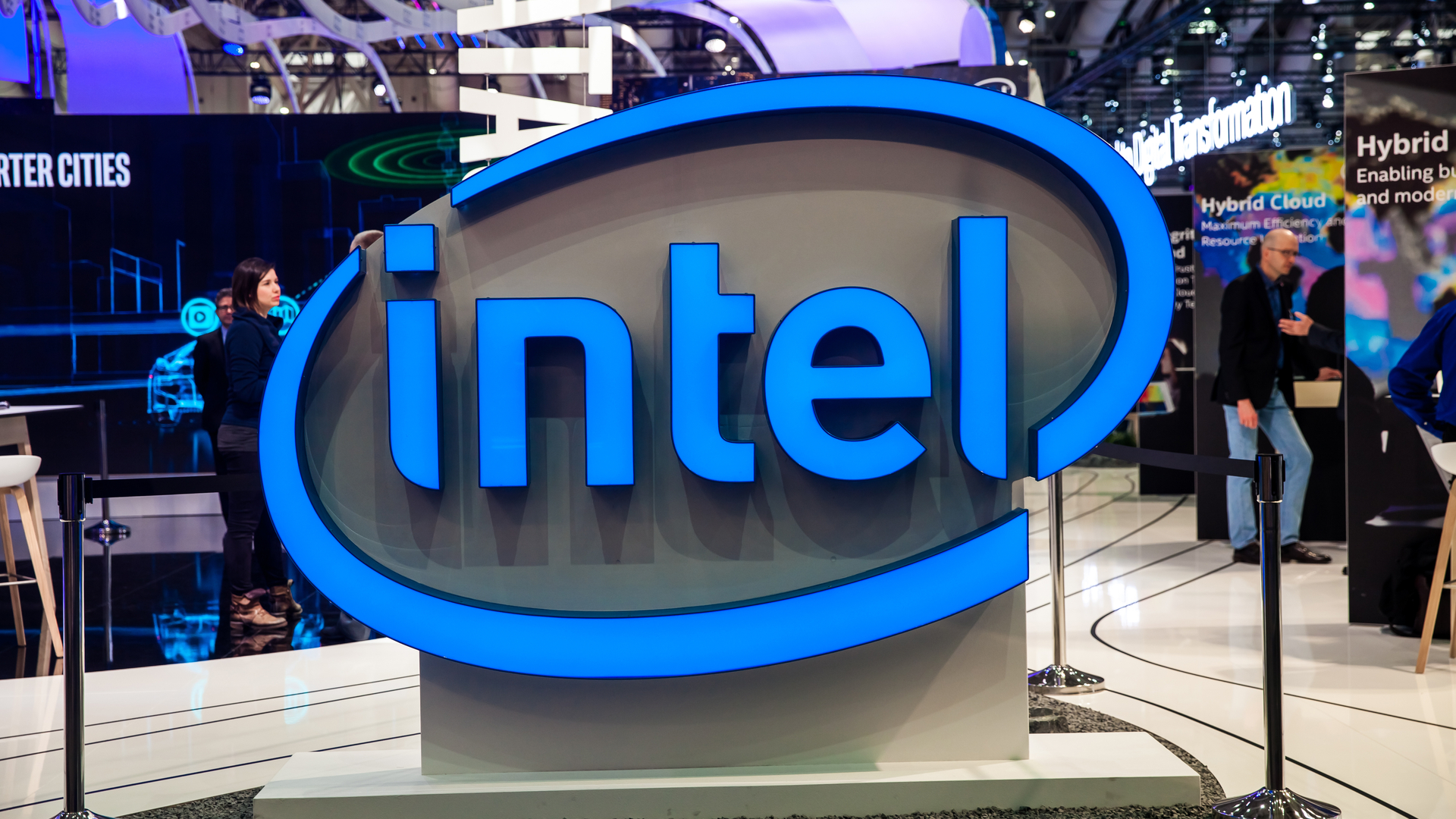Intel Arc Alchemist GPUs could be pricier than we’d hoped
Intel’s own graphics card giveaway hints at suggested pricing levels

Sign up for breaking news, reviews, opinion, top tech deals, and more.
You are now subscribed
Your newsletter sign-up was successful
Intel’s high-end gaming graphics cards which are set to go on sale in the first quarter of 2022 will bring some much-needed competition to the GPU world, but exactly how competitive will they be? Well, we just heard something interesting from the rumor mill regarding the potential pricing of Team Blue’s incoming video cards.
As Tom’s Hardware spotted, Intel has an Xe Arc Alchemist GPU giveaway on the boil in which gamers can win various prizes, and the total value of those prizes is listed by Intel. Using a bit of simple maths, it’s possible to work out ballpark figures in US dollars for the possible asking prices of the Xe-HPG cards.
- We'll show you how to build a PC
- These are the best processors for your PC
- Check out all the best PC games
The grand prize amounts to a value of $900, with the winner getting a ‘premium’ Intel Arc graphics card (flagship), and the first-place prize is $700 approximately, and comes with a ‘performance’ Intel Arc GPU. (There’ll be 100 and 200 winners of each respectively).
The prizes also come with six months of Xbox Game Pass for PC in the case of the top winners, and three months for first-place winners, plus some Intel Arc branded merchandise (to an unspecified value).
So, with the premium flagship GPU, if we knock off $60 for the Xbox Game Pass subscription, that leaves $840, minus what the Intel merchandise might be worth – perhaps $50, or $100? Giving us an estimated price of around $740 to $790 for the card.
Similarly, for the performance Arc graphics card, we start with $700, knock off $30 for the three months of Xbox Game Pass, and then that drops to about $570 to $620 after the merchandise has been accounted for.
So the rough pricing indication is approaching $800 for the flagship, possibly, and around $600 for the performance GPU (about £580, AU$1,070, and about £440, AU$800 respectively, but of course currency conversions in this case are pretty meaningless).
Sign up for breaking news, reviews, opinion, top tech deals, and more.
Theoretically, the flagship will be the previously rumored graphics card with 512 EUs (Execution Units), and the performance model might be the one under that, purportedly with 384 EUs, going by previous speculation (though Intel is set to switch to a different naming scheme with Arc cards, abandoning EUs in favor of Xe Cores).
Analysis: Hope fades for competitive pricing from Intel?
This feels a little disappointing, as we were hoping Intel might attack on the pricing front with its high-performance gaming GPUs.
If these rough figures turn out to be correct, then given that the flagship Xe-HPG graphics card is rumored to equate to the Nvidia RTX 3070 or thereabouts – don’t be shy with the salt shaker here, of course – it’s not a relative bargain in comparison. At all – in fact, this seems to suggest that Intel’s top dog GPU will be more expensive, and indeed it’d be competing more with the RTX 3080 here.
That said, we’re talking recommended pricing, and real-world pricing is very different with the GPU stock shortages which continue to plague gamers, and aren’t expected to relent for a good while yet.
The reality is that suggested prices will be majorly inflated while this situation continues, as indeed Intel expects it will throughout the entirety of next year, perhaps. In all likelihood, supply pressures will still be very much exerting their unwanted influence on the graphics card market at the start of 2022 when Intel launches Arc Alchemist GPUs.
Competitive pricing and coming in with the intention of undercutting Nvidia and AMD, then, as a sure-fire way of breaking into the two-horse race of the graphics card market may not be a realistic proposition on this basis. Intel simply won’t need to look at lowering pricing to sell these products – they’ll fly off the shelves anyway, even with the guesstimated pricing talked about here – particularly if Team Blue isn’t producing a huge number of GPUs due to supply issues after launch…
- These are the best graphics cards
Darren is a freelancer writing news and features for TechRadar (and occasionally T3) across a broad range of computing topics including CPUs, GPUs, various other hardware, VPNs, antivirus and more. He has written about tech for the best part of three decades, and writes books in his spare time (his debut novel - 'I Know What You Did Last Supper' - was published by Hachette UK in 2013).